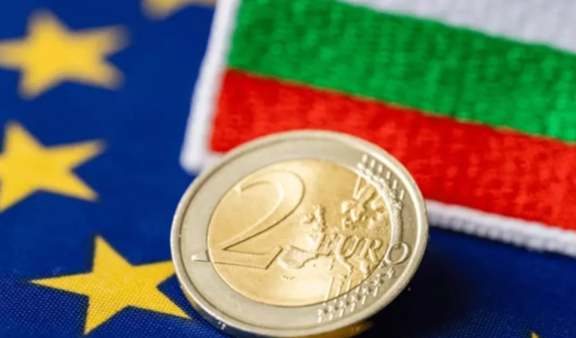It is now official – Bulgaria will become the 21st member of the euro area. This concludes a years-long process of preparing the country to join the monetary union. The first euro coins and notes will appear in Bulgarian wallets on January 1, 2026.
In June 2025, EU finance ministers unanimously approved Bulgaria’s entry into the eurozone. The Bulgarian lev will be replaced by the euro at the beginning of 2026, with the exchange rate set at 1 euro = 1.95583 leva.
Conditions Met
Bulgaria joined the ERM II mechanism – known as the “eurozone waiting room” – in July 2020. Since then, the lev’s exchange rate has remained pegged to the euro at a stable rate.
After five years, EU member states gave the green light based on a positive assessment by the European Central Bank and the European Commission, which confirmed that Bulgaria meets the required convergence criteria: low inflation, stable public finances, lasting exchange rate stability, and low interest rates.
The final step was taken when the European Parliament gave its approval on July 8, 2025. Bulgaria will thus officially become the first country to adopt the euro since Croatia joined in 2023.
Euro: Opportunity for Citizens and Economy
Adopting the euro means easier travel and trade – particularly important for a country that relies on tourism and exports. The common currency was already widely used, with prices in many stores displayed in both leva and euros.
Bulgaria will also gain access to the Eurogroup and will take part in decisions on interest rates, ensuring greater financial security. Supporters emphasize that this step will boost foreign investor confidence and strengthen the country’s resilience to Russian influence.
“This is an important signal for all of Central and Eastern Europe. For example, if Bulgaria – a country with a lower per capita income – was able to carry out reforms and prepare for the common currency, then Poland should all the more set a course for the euro,” comments Marek Tatala, president of the Polish Economic Freedom Foundation.
Symbolic Coins and Step Toward European Integration
Bulgarian euro coins will feature national symbols, including the famous Madara Rider and Saints Ivan Rilski and Paisius of Hilendar. Bulgaria will be the first Orthodox country to feature religious figures on its euro coins – a sign that the common currency can unite diverse national traditions.
The decision for Bulgaria to adopt the euro confirms that it pays to reform the economy, strive for greater stability, and build trust in European markets.
Written by Andrzej Prendke



